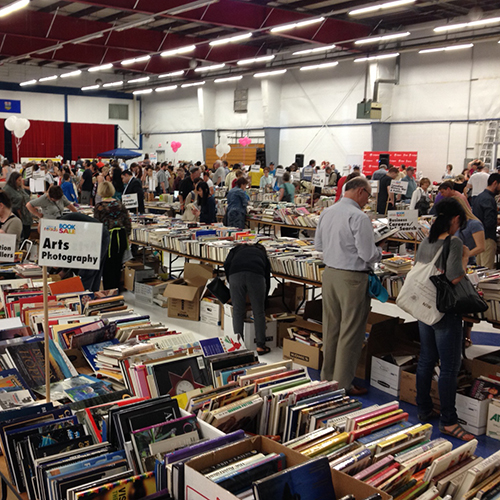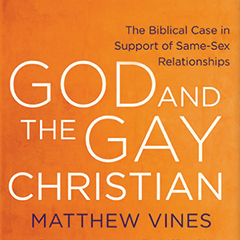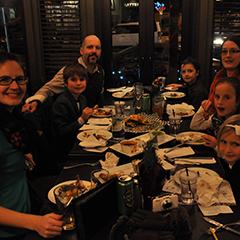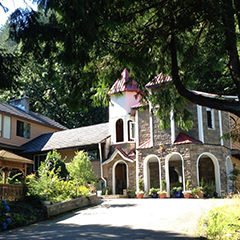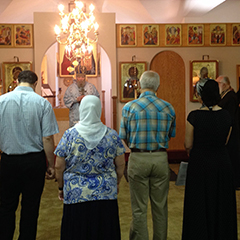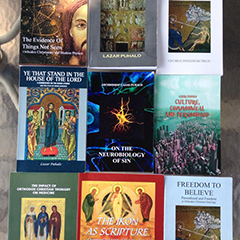A few days ago, a childhood friend of mine shared this video to Facebook. He grew up in the same church as I did and about 3 or 4 years ago he abandoned his faith to become an agnostic. Following the video are some comments between him and one of our high school classmates who, as you can tell, is still a Christian.
Bill Nye The Science Guy says this was the craziest moment from the 2014 creationism debate.
Posted by Business Insider on Thursday, April 9, 2015
Agnostic: All very good points. I must admit that the "Noah's Ark" story was one (of many) things that made me realize the bible is largely fictional. Just doesn't make sense for lots of reasons, one of which he articulates very clearly.
Christian: Never set limits on Jesus...He's fully capable
Agnostic: So he created all of these new species without anyone noticing? Lol. And that is one of the smallest problems with the Noah story.
Christian: Are you saying He can't?
Agnostic: Yep, I am. But, in fiction, anything can happen. My bigger problem is with a God that would destroy his "creation" in such a cruel way. Imagine little children who have done nothing besides being born to "evil" parents being forced through the horror of watching their parents die in such a horrible way and then to die by drowning. If there was such a god...think I'd crucify the SOB myself . But, I draw comfort in the fact that the story is obviously made up...our modern knowledge of geology and archeology really don't leave much doubt anymore. So, if there is a god (and I don't deny it is at least possible), he did not destroy the world with a flood and he (she?) is not what the bible depicts. Anyway, just my thoughts. Hugs
Christian: There are some things I cannot explain nor understand this side of heaven.....but I choose to place my faith and trust in Jesus....someday I will get the whole story but until then I trust in His plan.
First, let me say how pleased I was at how civil the comments were to one another. There is a rooted respect for the other and any disparaging comments were accompanied with hugs or admitting that this is their choice of belief or opinion. Refreshing, no?
Here we have two literal understandings of Genesis 6-8, where because of the wickedness on the earth, God sends a yearlong flood to destroy the earth, but saves 8 people and all flood surviving species in an ark. It is a darling story in Sunday Schools and Sabbath Schools because of the prolific images of giraffes, elephants and polar bears poking their heads out of a semi-circle wooden boat. The narrative of global destruction is glossed over for kids (and many adults) with selective reading focused on the saving love of God.
Agnostic's understanding is rooted in the dissonance of a loving God who has no problem wiping out almost all life on earth, with the added complication of scientific dissonance (sheer numbers of species, geological evidence, and the way too recent timeline). He has decided that the whole Bible must be false, or in his words, fiction. Of course, he has many other reasons not to believe that the Bible is fiction, this being just one.
Christian's understanding comes about since she was taught that the story of the flood must be taken as a literal, factual account. If this is not a factual account, then the Bible can not be accepted as God's word thus falsifying the resurrection of Jesus for instance. She resolves the evident dissonance with childlike faith (a practice endorsed by Jesus) and casually explains away scientific problems as events God could easily orchestrate since He is God.
But is there another way to understand the story of Noah, and other stories from the Bible?
I have been impacted by Mark Noll's excellent book on the history of Evangelical Christianity in North America called
The Scandal of the Evangelical Mind. As a result I am far better able to approach historical Christianity and ancient Christian doctrine (and understand why all these new churches came to exist in North America). In short the story is this: When the British churches came across the Atlantic, they abandoned church authority and became a deregulated enterprise. Anyone with a fresh look at Scripture or a charismatic preacher could start a new denomination, especially if they filled pews or tents. Preaching on hellfire was pretty popular as were exciting new interpretations of Revelation. Next came the Darwinists and the real possibility that churches were going to lose members so Christians reacted by actively trying to denounce teachings on evolution. (this is far to brief a telling, hopefully readers can extrapolate).
The result was an almost wholesale rejection of 1800 years of church tradition, which in some ways was important because of corruption. But in the end a great treasure trove of wisdom was lost by the new denominations. One of those treasures is the traditional way the Bible was interpreted. The early church and the churches who preserved these traditions (think Eastern Orthodox, Roman Catholic, Anglican) had ways of interpreting everything from end times theology (which is virtually non-existent by the way), who Jesus was, and of course Genesis. The Bible was not viewed as a book of facts - even Jesus words are probably not all quoted verbatim, but rather a book of truth and story helping reveal God's work among his people. Ultimately, God reveals himself through his Creation as well, and most importantly through His son Jesus through the incarnation.
Back to the flood. If I read the story of Noah as fact I am faced with a dilemma: accept Bible and reject science or reject Bible and accept science.
What if I read it as a narrative to reveal another prelude to the Gospel: end of sin through a cleansing of water (think baptism), salvation of man and creation. Eastern Orthodoxy calls Mary the ark because she carried salvation in her womb. Noah is called out in the New Testament because by faith he inherited righteousness. The "days of Noah" are referenced a few times in the New Testament too as days of wickedness, times where redemption was needed. Imagery of cleansing water appears throughout the Bible.
So, do I believe the Bible to be true? Do I believe the story of Noah to be true? Yes.
Do I believe that all the stories in the Old Testament are factual accounts? Better: Do I
have to believe that all the stories in the Old Testament are factual in order to believe that they convey truth and ultimately the truth about Jesus? I don't think so. And I think there are very good reasons not to. The Old Testament is a collection of various authors over many centuries in an ancient world very different from our own. Their use of stories differs greatly from the way we think of stories (think accurate reporting, a team of fact checkers, scholarly review, etc.). The Israelite people conveyed stories to bring identity and meaning and purpose and hope of deliverance and to share what they had come to know about God. They weren't meant to be referenced in geological analysis or as source for speciation in the biology lab. Noah and the Flood teach me that God hates wickedness; God can do incredible things when we are faithful.
I do believe a guy named Noah who was faithful to God existed. I also believe that there was a destructive flood, an ark, saved animals, etc. It isn't important to me whether or not he was one of only 8 living people on the planet after a worldwide, cataclysmic flood. It is important that his story tells a truth about who God is and who we are.
I would certainly appreciate Bill Nye's response to this latter understanding of Noah and a smaller scale flood.
---
At one point in the comments, God's righteousness is questioned since he would have killed innocent children along with the wicked. This is a much deeper problem that Christians ought to wrestle with. This along with the wiping out of entire tribes in Canaan (genocide?) or certain Psalms where the one sings for the destruction of their enemies in some pretty violent ways (reference as the imprecatory psalms or the cursing psalms). How do we resolve this perceived picture of God with the ultimate and most accurate revelation of God through Jesus? Jesus calls on his followers to love and pray for their enemies - not curse them. Instead of calling down fiery sulphur onto the wicked Romans, he allows them to crucify him. Dissonance anyone? I won't get into how I resolve these in this post, but it is certainly worth discussing at some point. Randal Rauser does a fine job in his book which I just reviewed last week (
The Swedish Atheist, the Scuba Diver, and Other Apologetic Rabbit Trails) and at
his blog. I'm also keen to read the upcoming
A More Christlike God by
Brad Jersak as he tackles these very legitimate concerns.
